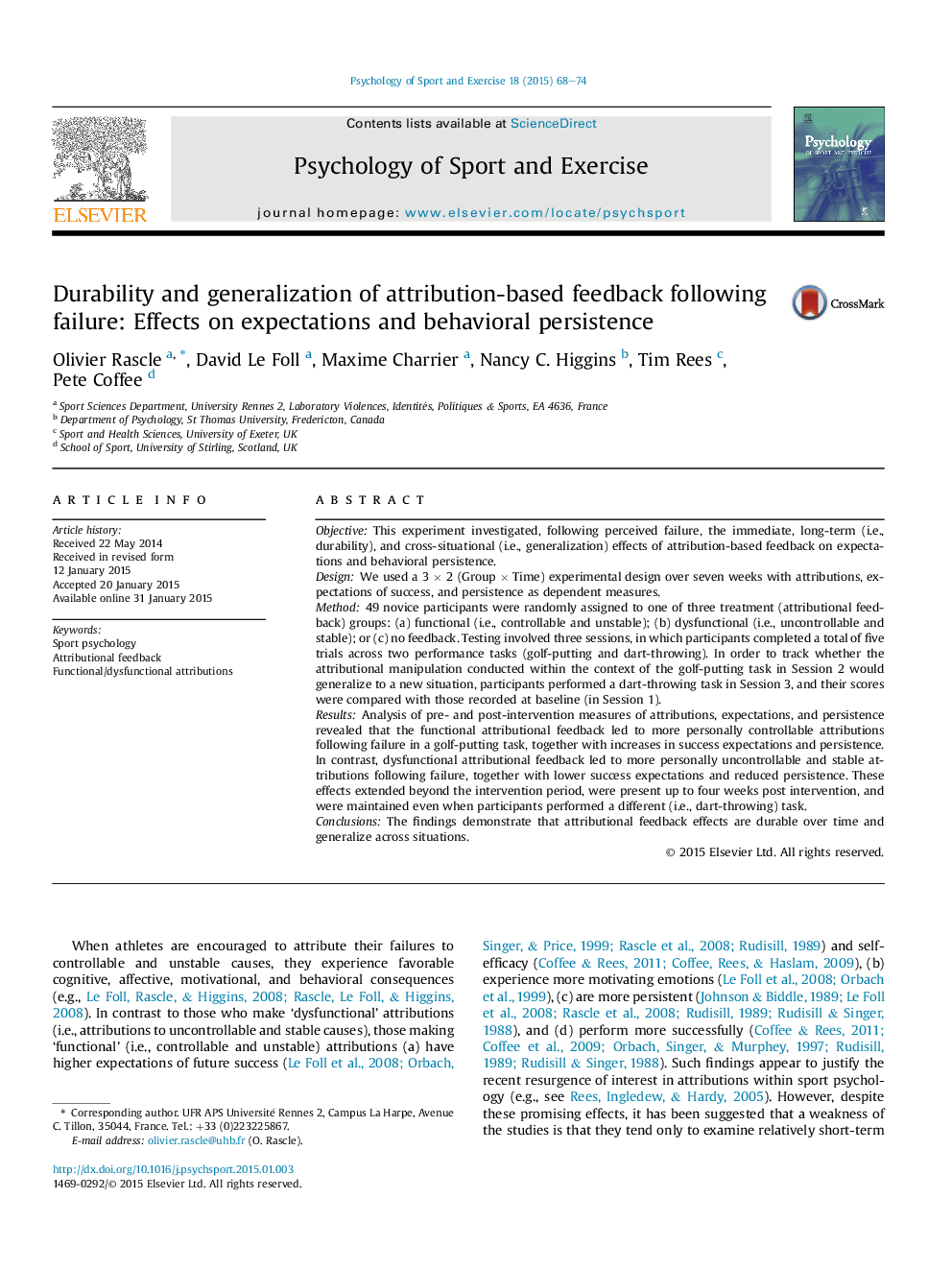| کد مقاله | کد نشریه | سال انتشار | مقاله انگلیسی | نسخه تمام متن |
|---|---|---|---|---|
| 894304 | 1472109 | 2015 | 7 صفحه PDF | دانلود رایگان |
• Functional attributional feedback increased expectations and persistence.
• Dysfunctional attributional feedback decreased expectations and persistence.
• Attributional feedback effects were maintained four weeks later.
• Attributional feedback effects were maintained in the context of a different task.
ObjectiveThis experiment investigated, following perceived failure, the immediate, long-term (i.e., durability), and cross-situational (i.e., generalization) effects of attribution-based feedback on expectations and behavioral persistence.DesignWe used a 3 × 2 (Group × Time) experimental design over seven weeks with attributions, expectations of success, and persistence as dependent measures.Method49 novice participants were randomly assigned to one of three treatment (attributional feedback) groups: (a) functional (i.e., controllable and unstable); (b) dysfunctional (i.e., uncontrollable and stable); or (c) no feedback. Testing involved three sessions, in which participants completed a total of five trials across two performance tasks (golf-putting and dart-throwing). In order to track whether the attributional manipulation conducted within the context of the golf-putting task in Session 2 would generalize to a new situation, participants performed a dart-throwing task in Session 3, and their scores were compared with those recorded at baseline (in Session 1).ResultsAnalysis of pre- and post-intervention measures of attributions, expectations, and persistence revealed that the functional attributional feedback led to more personally controllable attributions following failure in a golf-putting task, together with increases in success expectations and persistence. In contrast, dysfunctional attributional feedback led to more personally uncontrollable and stable attributions following failure, together with lower success expectations and reduced persistence. These effects extended beyond the intervention period, were present up to four weeks post intervention, and were maintained even when participants performed a different (i.e., dart-throwing) task.ConclusionsThe findings demonstrate that attributional feedback effects are durable over time and generalize across situations.
Journal: Psychology of Sport and Exercise - Volume 18, May 2015, Pages 68–74
